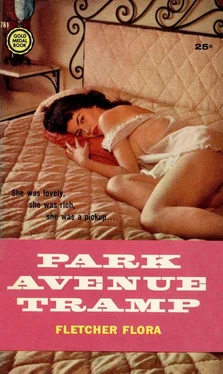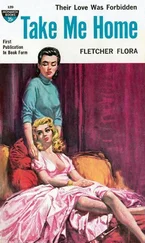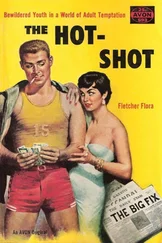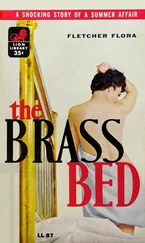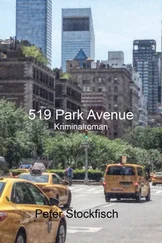Sweeney didn’t reply. He lowered his eyes and removed his index finger from the notebook in a sign of complete capitulation. His report and his pride were now thoroughly mutilated, and he sought expression for his feelings in the deepest and vilest cavity of his brain. Farnese, after silence, spoke again. His voice was soft and measured, as if he were weighing his thoughts and words with special care.
“Mr. Doyle has become a fixture,” he said.
“He hangs on,” Sweeney said with concealed relish.
“Yes.” Farnese unlaced his fingers and made a tent of them, placing their tips together with a careful exactness that seemed to reflect the quality of his thinking. “It’s unfortunate. As you have reason to know, I am, for reasons of my own, exceedingly tolerant of my wife’s social activities. There are times, however, when it becomes advisable to interfere, and I’m inclined to believe that now is one of the times.”
Sweeney was offended by Farnese’s oblique approach to brutality. It made him sick. He had no such reaction to brutality in itself, however. In the pustule world, he had suffered and administered it far too often himself to make of it a particular issue. It was only the indirection, the tone and posture of sadistic piety, that offended him. There was a kind of minor salvation from the worst of hell, he thought, in calling a spade a spade.
“The same as before?” he said.
“Yes. Do you still have your contact with Mr. Chalk.”
“Sure. Chalk’s always available.”
“Arrange it.”
Sweeney put his notebook away in his pocket. He sighed and coughed and wiped his thick lips with a soiled handkerchief. He sat staring intently at the handkerchief as if he expected to find it stained with blood.
“The price will be up,” he said.
“It was up last time.”
“I know. From five hundred to seven-fifty. This time it’ll be a thousand. That’s Chalk’s schedule.”
“Very well. A thousand.”
“When do you want it?”
“As soon as possible. Tonight?”
“I don’t think so. Chalk’s a careful organizer. He doesn’t like to be pressed. Maybe tomorrow night.”
“All right. Take care of it and let me know.”
“Sure. You want to be there?”
“Yes.”
“I’ll talk with Chalk.”
He heaved himself to his feet and stood waiting for a few seconds to give Farnese a chance to say anything more that he might want to say. Apparently Farnese wanted to say nothing, for he remained silent, and Sweeney walked out of the office and past Miss Carling in the outer office and down ten floors to the street. It was a long descent that taxed the endurance of his obese body, and he did not ignore the elevator because he enjoyed the exercise. It was rather because the small steel box in its deep shaft was suddenly the fearful instrument of a developing encroachment. Cornered and confined in his own gross self by what he had become and was and could expect to be, he was aware of a claustrophobic fear that he didn’t understand and refused to admit.
In his car, a plain black Ford, not new, he drove to lower Broadway and was lucky enough to find a spot to park. He was compelled to walk two blocks, however, to reach his destination, which was a small cigar and tobacco shop. This shop was operated by the man named Chalk, and Chalk himself, in a continuation of Sweeney’s luck, was sitting on a high stool behind a high glass counter. He was a thin man with a curiously flat face, plastered hair so glossily black that it was plainly dyed, and skin that looked burned out by some former terrible fever of the flesh, brittle and checked and gray-white, the color that his name denoted.
In Chalk’s shop you could actually buy cigars and tobacco and cigarettes and numerous items essential or incidental to smoking, but the sale of this merchandise, although he made a profit from it, was not Chalk’s principal source of revenue. Most of his income came from the sale of marijuana, which was distributed in cigar boxes by half a dozen pushers operating from his rear room. Besides this, he was usually prepared to contract various lucrative odd jobs. Like, for instance, the odd jobs he had done for Bertram Sweeney acting as the agent of Oliver Alton Farnese.
“Hello, Chalk,” Sweeney said now, placing one elbow on the metal frame of the glass counter and leaning heavily.
Chalk nodded.
“Hello, Sweeney,” he said. “Watch the glass.”
“Sure,” Sweeney said.
He shifted his weight a little as a concession to Chalk’s concern, but he didn’t remove the elbow. Chalk watched him with a worried expression until it became apparent that the glass was safe, at least for the present, and then he relaxed and sucked noisily at the sodden end of a dead cigar.
“What’s on your mind, Sweeney?” he said.
“I was wondering if Cupid’s around.”
“Not now. Couple days since I’ve seen him.”
“I didn’t mean that. I mean, is he available?”
“Could be. He usually is. You got a job for Cupid?”
“For someone. Client of mine wants a guy taken care of.”
“How much care of?”
“Nothing final. Just a good lesson he’ll remember.”
“Oh. I see. Just dressed up a little.”
“That’s right. You interested?”
“Depends. What client, for instance?”
“Same as last time. Same as time before last. Farnese.”
“Jesus! That guy must hate a lot of people.”
“He hates the ones his wife likes. That’s a lot.”
“This would be the third job. It’d run to a grand.”
“I know.”
“You better tell him.”
“I already told him.”
“Okay. Who’s the guy he wants handled?”
“Name’s Joe Doyle. You know Duo’s? It’s a little joint down in the Village near Sheridan Square. Doyle plays the piano there. A young guy. Ugly. Real thin. Looks like he doesn’t eat regular.”
“A lousy piano thumper? Honest to God? How’d a guy like that ever make Park Avenue?”
Sweeney shifted his weight again, and the frame of the glass counter creaked beneath it. He felt angry, filled with a tepid and sluggish resentment, as if Chalk were referring facetiously to the betrayal of Sweeney himself. Which he was, of course, in the crossing of Sweeney’s worlds.
“Who knows?” Sweeney said. “Who predicts a woman? Anyhow, it’s neither here nor there. Doyle’s the guy. He sleeps up in the Washington Square area, but I figure it would be better if you snatched him at Duo’s, when he comes out from work. He quits around one, usually, sometimes earlier, now and then later. He keeps his car parked in the alley behind the place and goes out the back way when he’s through. That would be the time and place.”
“Not tonight. It’s too quick.”
“No. I figured that. Tomorrow night.”
“I’ll see. You want Cupid in particular? I’ve got other reliable boys willing to work.”
“I like Cupid. There’s something poetic about him. He looks the part.”
“He does. He sure as hell does. No denying that.”
“Tomorrow night, then. Cupid working. He’ll have an audience.”
“I’ll fix it,” Chalk said.
Sweeney moved, shoving his bulk erect. He took out his soiled handkerchief and wiped his mouth and stared down through the glass into the case.
“Gimme a couple of those Roi Tan blunts,” he said.
“Sure, Sweeney,” Chalk said. “Twenty cents, please.”
Sweeney dug out a couple of dimes and dropped them on the glass. Chalk produced the blunts and rang up the dimes, and Sweeney walked out into the street and back to the plain black Ford. In it, he drove to the shabby hotel in which he kept a room. He went up to the room and let himself in with his key and sat down on the edge of the bed. He removed his hat and rubbed his scarred scalp and began looking at the picture of Charity Farnese that stood beside the bed on the night table.
Читать дальше
